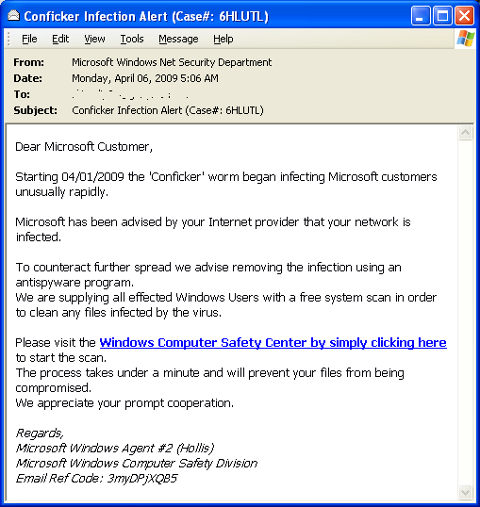04.17.10
Posted in Novell, OpenSUSE at 7:42 am by Dr. Roy Schestowitz

Summary: OpenSUSE events, a new project “milestone”, and assorted bits from the past two weeks
AS we migrated the Web site last week, no posts were made that summarise Novell’s progress (or lack thereof). The Easter vacation contributed to that. So today’s summary embodies news from the past fortnight, not a single week.
The main news would probably be OpenSUSE 11.3 Milestone 5, but we’ll start with a focus on events.
Events
Novell’s Brainshare is recalled in the following post about “Zypper Revolution”; it’s about system/package management.
I have been going over customer feedback from Novell’s Brainshare conference for my internal “Systems Management Zeitgeist” report, and there are a couple of points I just had to share with you all as they are plain simply inspirational.
OpenSUSE conference 2010 is being planned with anticipation in India and over in Nicaragua something similar is being prepared.
The folks of the openSUSE Community in Nicaragua, are preparing a great event in the city of Granada, Nicaragua, in Central America.
In Indonesia there is this OpenSUSE Community Web site.
Indonesian openSUSE Community website has been activated since July 2007 and provide news update, information, tutorial, tips & trick regarding openSUSE using Bahasa Indonesia as main language. I think it would be better to provide a major changes & improvement for main site, especially for content integration and daily update.
From another conference come many videos, such as the talks from Lenz Grimmer, Zonker, Klaas Freitag, Benjiman Weber & Pascal Bleser, and Katarína Machálková (whom we mentioned earlier today). Here is how the OpenSUSE Web site explains it:
Well it’s been almost seven months since our inaugural conference, and there were a load of videos taken.
[...]
Currently only Day 1 of the conference is available, you can view online (flash) or download (ogg) the talks from the openSUSE TV channel on BlipTV. I am working on getting a channel on YouTube to enable a wider reach, as some people have bandwidth issues with Blip. You can also subscribe to the feeds in multiple formats – rss, miro, itunes.
Wafaa still blogs about the OpenSUSE community and communities in general [1, 2]. The OpenSUSE community is considered to be very cohesive.
Reviews
We have not found a single review of OpenSUSE, but someone who moved from OpenSUSE 11.2 to Kubuntu 9.10 wrote about this decision in comparative terms, such as:
Ubuntu also has local mirrors in Australia, and I have always found these to be very fast. Updates and package installs are handled with no fuss whatsoever. No lockups, no problems. It just downloads the files (several at a time) and then installs them. I am never left with a broken system, or if for some reason I am, I can select “fix broken packages” from within Synaptic and the problem is then rectified. I do not recall if zypper has such a feature.
A new review of CrossOver 9.0 for GNU/Linux was based on OpenSUSE:
All tests were run in an openSUSE 11.2 Virtual Machine with 1GB RAM.
Technical
In a new guest post, Rares Aioanei explains Linux inside OpenSUSE while another person from OpenSUSE writes about “openSUSE 11.3 and SELinux” as follows:
The first step was to bring the next milestone of 11.3 to the level of 11.2 by adding load_policy to the mkinitrd scripts. The patch was submitted to Base:System a few hours ago. This work-around was needed because we switched to upstart which does not contain native C API calls to libselinux to load the policy from within init.
The next step fixed the file permissions of /etc/selinux/config to be 644 and to add some functionality to the selinux-ready script. Both are in security:SELinux now and on their way to opensuse:Factory.
OpenSUSE was one of the earliest distributions to incorporate SELinux.
More OpenSUSE-hosted or OpenSUSE-specific HOWTOs from April would be:
- openSUSE 11.1 / SLES11 and add-ons
- How to Configure clear and smooth fonts (subpixel rendering) in OpenSuSe Linux
- Install ATi Drivers on OpenSUSE
- Installing VirtualBox on openSUSE 11.2
- Installing Ruby 1.9 on openSUSE 11.2
- Samba 3.5.2 SMBTA v2 enabled packages releasedRuby 1.9 on openSUSE and SLEx
- Call for testing: unzip feature
- Small script to monitor service/process
Leftovers
Issue 117 of OpenSUSE Weekly News has been released along with an audiocast [1, 2, 3]. The same goes for the 118th issue [1, 2, 3], whose author, Sascha Manns, keeps packaging software for OpenSUSE [1, 2, 3]. Progress has generally been slow recently, but OpenSUSE 11.3 Milestone 5 is out, so the project carries on, regardless of Novell’s fate (Novell is up for sale). █
Permalink
 Send this to a friend
Send this to a friend
Posted in Courtroom, Finance, Microsoft, Novell, SCO, UNIX at 6:51 am by Dr. Roy Schestowitz

Summary: Updates on the SCO case, including McBride’s latest cash infusion for the company and Findings and Conclusions (on the 19th)
The SCO case is almost over and several publications [1, 2] like CIOL are still digesting the news (there are even new cartoons about it). Here is what Mark Webbink had to say on the subject and here is part of a new quiz:
8. A jury has made a ruling in the interminable SCO/Novell legal battle over who owns Unix. What did it decide?
a. SCO owns Unix
b. Novell owns Unix
c. IBM owns Unix
d. Nobody owns Unix
Groklaw continues to track SCO’s bankruptcy, realising that SCO will indeed receive money from Darl McBride and other former executives of SCO [1, 2, 3].
The agenda for the hearing in bankruptcy court regarding Darl McBride’s offer to buy the SCO mobility assets set for April 7th is now posted on Pacer…
More on Darl:
This was the hearing primarily about SUSE’s motion to lift the stay so it could finish the arbitration in Switzerland. And we have some recent bankruptcy filings, mainly the order letting SCO sell the mobility assets to former CEO of SCO Darl McBride.
“Darl Buys (Not Licenses) SCO’s Mobility Assets for $100,000,” heralds a later post from Groklaw.
First word from the bankruptcy hearing today on Darl McBride’s offer to buy SCO’s mobility assets. Groklaw’s UD has this quick report, with more to come later:
[...]
Note that this was a *sale*, including the IP, not Darl licensing it, as originally proposed. Is there a word for the opposite of bait and switch?
Groklaw happens to have received high accolades for its work tracking SCO. Right after SCO had lost the case (again), David Wheeler called Groklaw “the new face of journalism”:
Groklaw was vastly different. Groklaw is more than a website or blog, it is a community of people who gathered evidence, analyzed it, and helped other people get the true picture. Traditional journalists may bemoan the loss of local newspapers, but why should people pay for rehashed press releases when the blogs are a more accurate and broader source of information? In short, if you wanted full and accurate public information related to SCO, Groklaw had it; traditional sources didn’t.
The Library of Congress has also decided to keep an archive of Groklaw.
The Mad Hatter wrote about Groklaw and Techrights as follows:
Groklaw – a lot of us have been following the case of suicide by lawsuit that is The SCO Group. Many of us have been hanging out at Groklaw since PJ started it over at Radio Userland, and this is another thank you to her for all of her hard work. For those not familiar with the case, I’d suggest reading Carla Schroder’s article at Linux Planet. To get a better idea of Groklaw’s impact on the community I strongly suggest reading Frank Hayes’ paean of praise Frankly Speaking: Grokking SCO’s Demise published way back in August of 2007. If you read The end, finally, at last, hopefully? Jury finds Novell retained UNIX copyrights you’ll see them quoting Groklaw, just as Frank quoted Groklaw in 2007. The point being that the traditional media messed up time after time in the reporting. The only accurate reporting was the work that PJ did at Groklaw. Again, thanks to PJ. In fact she’s partially to blame for me starting up ‘Through the Looking Glass’ – without her inspiration I probably never would have gone forward with my own writing.
Boycott-Novell – Boycott Novell has undergone a name change, and an expansion of mission. The site is now known as TechRights. While I called this an expansion of mission, really it’s a recognition of a change that occurred a while back. While still covering the implications of the Novell-Microsoft pact, Boycott Novell had long been covering other issues of concern to the Free Software community. A lot of people don’t like Roy. There’s long been claims that his reporting is inaccurate and biased. The funny thing is that no one has managed to successfully challenge Roy’s reporting, no matter how hard they try. Good work Roy!
There is more from SCO and Novell coming this Monday:
SCO and Novell have filed a joint motion, asking the court to order a new deadline for them to file their Proposed Findings of Fact and Conclusions of Law:
The parties have agreed to an extension of time until and including Monday, April 19, 2010, for filing their respective Proposed Findings of Fact and Conclusions of Law. This Motion respectfully request that the Court so order.
Nick Farrell, writing for The Inquirer, calls Viacom vs Google the new SCO vs Novell:
It is starting to look like this will be the case that will replace SCO versus Novell in the IT court case menu of entertainment. Better get some popcorn in.
Actually, the new SCO versus Novell ought to be one of Microsoft’s many similar actions against GNU/Linux. How about the TurboHercules vs IBM case? █
“…Microsoft wished to promote SCO and its pending lawsuit against IBM and the Linux operating system. But Microsoft did not want to be seen as attacking IBM or Linux.”
–Larry Goldfarb, BayStar, key investor in SCO approached by Microsoft
Permalink
 Send this to a friend
Send this to a friend
Posted in Mail, Microsoft, Quote, Security, Windows at 6:20 am by Dr. Roy Schestowitz

Summary: “Up to 88% of Fortune 500 companies” are said to have been affected by the Zeus trojan alone, so questions about Microsoft’s liability arise again
WE PREVIOUSLY showed that about one in two PCs that run Microsoft Windows is a zombie PC.
An argument regarding an earlier post brought up the following response that cites an item from the news:
Microsoft is to blame for spam. Almost all businesses that use Windows have a Botnet problem.
Up to 88% of Fortune 500 companies may have been affected by the Zeus trojan, according to research by RSA’s FraudAction Anti-Trojan division, part of EMC. The trojan installs keystroke loggers to steal login credentials to banking, social networking, and e-mail accounts. [...] Smaller companies (those with fewer than 75,000 employees) appeared to have a higher proportion of infected employees.
My bet is that 100% of computer networks with Windows are infected and that the missing 12% are so well captured that those watching are unable to tell.
Blame for this universal failure can only be laid at Microsoft’s feet. Either the whole world administers Windows incompetently, or Windows is hopelessly insecure. If it were possible to secure Windows, the majority of Fortune 500 companies would not have a problem. No other software has this kind of problem.
As I argued yesterday, “systemic neglect is Microsoft’s fault [1, 2, 3]. Microsoft does not patch known holes until the attacks begin. We wrote a lot of posts about this in January [1, 2, 3, 4, 5, 6, 7, 8, 9, 10, 11, 12] since a known Internet Explorer hole that Microsoft had ignored for 5 months caused enormous damage to many businesses, Google included.”
Last year, when researchers showed that it was simple to take control of Vista 7, Vipin Kumar was quoted as saying that “There’s no fix for this. It cannot be fixed. It’s a design problem.” █
“Our products just aren’t engineered for security.”
–Brian Valentine, Microsoft executive
Permalink
 Send this to a friend
Send this to a friend
Posted in Asia, Deals, GNU/Linux, Google, Kernel, Kyocera Mita, LG, Microsoft, Patents, Samsung at 6:07 am by Dr. Roy Schestowitz

Summary: The IBM-led Linux Foundation allows Microsoft to make money from Linux by accepting another member which engages in this questionable practice
BASED on the news [1, 2, 3], LG Electronics has joined the Linux Foundation. This foundation typically accepts anyone regardless of policy on software patents and even an intricate relationship with the company that litigates against Linux. Here is the official announcement:
The Linux Foundation, the nonprofit organization dedicated to accelerating the growth of Linux, today announced that LG Electronics is its newest member. LG will participate in the Linux Foundation’s events and community development efforts.
A lot of people may no longer remember LG’s treasonous pact with Microsoft. LG is paying Microsoft for Linux (we call it “Ballnux” when that happens) and it is rather discouraging to see many announcements this month about Ballnux devices from LG [1, 2, 3]. Microsoft is making money from both Windows and Android now, thanks to LG. Here is another new phone that’s coming.
Details are starting to emerge (translated) about a forthcoming Android-based smart phone from South Korean handset maker LG. From the sounds of it, the LU2300 will fit well with some of the newer “super” phones like the Nexus One and Motorola Droid.
How does Google feel about being taxed by Microsoft (at a manufacturing level) for its operating system? See the Apple vs HTC case, recalling that Microsoft used it to justify extortion against large vendors for Free software that they use. This is what Microsoft does with LG and Samsung, which is also based in Korea. Samsung must be paying Microsoft for Linux boot-up on its new sub-notebooks.
It looks ordinary enough and has largely average performance, though the extra battery life is welcome and the alternative Linux boot-up is fun.
Samsung also has some new Android phones [1, 2, 3], which are being ‘taxed’ by Microsoft behind people’s backs.
If AT&T keeps in line with their recent Android strategy, the Galaxy S could be hampered by lock-downs and restrictions.
Yes, it hardly even feels like Free software. But where is the mainstream media, which is simply not covering the fact that Microsoft makes money from Android by extorting companies like LG, Samsung, and Kyocera? This is a major issue. █
Permalink
 Send this to a friend
Send this to a friend
Posted in Apple, Microsoft, Mono, Novell, Servers, SLES/SLED, Windows at 5:29 am by Dr. Roy Schestowitz

Summary: Why programming with Mono (or with MonoTouch) is a risky thing to do, especially now that Novell is up for sale and Apple blocks .NET/Mono
THE Mono and Moonlight advocacy from a Microsoft MVP who is also a vice president of Novell carries on with announcements like this one. The difference between Microsoft and Novell is not quite so clear anymore.
A few days ago we found this post in Planet OpenSUSE . It’s about running ASP.NET under SUSE. Is this Novell’s vision?
Previously, I wrote an entry on setting up mojoPortal (ASP.NET web app) on SUSE Linux Enterprise with the Mono extension (link). Using the exact same steps that I described, written & tested against my Lenovo Thinkpad (x86), I can achieve the same result on the IBM System z10 BC!
As we’ve pointed out for over a week now, Apple is blocking Novell’s MonoTouch [1, 2, 3, 4, 5] and there is not much Novell can do except beg or negotiate. [via]
We are reaching out to Apple for clarification on their intention, and believe there is plenty of room for course-correction prior to the final release of the 4.0 SDK.
From Miguel de Icaza’s blog:
We have just released MonoTouch 3.0.0 with support for iPhoneOS 4.0′s new APIs. To try it out, you need to have Apple’s iPhone 4.0 SDK installed otherwise MonoTouch 2.0 wont let you download the new toolkit (since it is Apple confidential at this point).
Novell carries on pretending that it is not being blocked by Apple. In the mean time, anyone who embraces MonoTouch may see his/her work going down the drain. As we pointed out last week when someone inquired, relying on Mono in general is a bad idea because Novell is up for sale and the future of Mono is therefore uncertain. Buy hey, with C# code there’s always Microsoft’s warm embrace to run to. That perhaps is part of the plan. █
Permalink
 Send this to a friend
Send this to a friend
Posted in GNU/Linux, OpenSUSE at 5:09 am by Dr. Roy Schestowitz

Summary: The phrase “you’re the man!” leads to a little debate about sexism in SUSE
OpenSUSE’s Henne has published “Kick Ass!” It’s a humourous post that says “You’re the man!” It is a post that offended Katarina*, who wrote: “No, I’m not and neither is 2-3 % of openSUSE users (they’re women, for clarity sake). Sure, compared to the rest of openSUSErs, it’s small minority, but still there.
“If somebody from openSUSE board will again contemplate why is it there is so few female openSUSEs, off-putting statements like this could be one of the reasons.”
This is the “boys’ club” syndrome, which actually affects not just OpenSUSE, let alone computing. There’s this stereotype of programming being done by “geeks” who are sometimes “bearded”, socially-inapt (“dorks”/”nerds”) and are male. But anyway, as Henne points out, “you’re the man!” should not be taken too literally. It’s a sweeping statement like “you guys”, which can mean girls too. Perhaps these phrases remained for historical reasons. This issue is worth bringing up especially because Ubuntu became a victim of it too. Here again is a brand new example of the phrase being used.
Planet OpenSUSE has undergone some major changes [1, 2, 3, 4]. As Pascal put it:
I just switched Planet openSUSE over to the new design.
Now watch this response to the new look of Planet OpenSUSE:
So say with me, Who the man?
This probably ought not to offend any girl. In this case in particular the author refers to one guy. And finally, this subject is worth debating because: 1) it not only affects Free software (contrary to myth); 2) it is sometimes being exaggerated and leads to even more gender tension than there ever was to begin with. █
___
* She previously complained about OpenSUSE shirts that focused on men’s sizes, and that’s a fair point.
Permalink
 Send this to a friend
Send this to a friend
Posted in BSD, Deception, Free/Libre Software, GNU/Linux, Microsoft, Office Suites, Oracle at 8:12 pm by Dr. Roy Schestowitz

Worm heart versus warm heart
“Open source is an intellectual-property destroyer [...] I can’t imagine something that could be worse than this for the software business and the intellectual-property business. I’m an American; I believe in the American way, I worry if the government encourages open source, and I don’t think we’ve done enough education of policymakers to understand the threat.”
–Jim Allchin, President of Platforms & Services Division at Microsoft
Summary: Embracing, extending, and extinguishing something is hardly a case of promotion, but gullible minds remain
THOSE who refuse to learn from the past will sooner or later be devoured by the company whose CEO said that “Linux is a cancer that attaches itself in an intellectual property sense to everything it touches.” Microsoft is all about software patents, which are inherently incompatible with Free/open source software.
One can either laugh or cry at this new sight of a press release stating:
“Companies such as Microsoft, Oracle and IBM have been active in promoting the open source community,” said Jim Miller, IWS Chairman and CEO.
This is a bizarre statement. Microsoft is a very bad example, probably the worst example one could possibly give in this case. When Microsoft supports something that it labels “open source”, this is simply done in order to sell proprietary software. Writes someone from OpenOffice.org: “Except that I have been able to talk with Paula Bach (from Microsoft) who was one of the organizers of the FLOSS usability workshop” (to make OpenOffice.org use Microsoft’s ribbon? That’s what our source alleges anyway).
The Microsoft-boosting blog at IDG writes about Microsoft’s attempt at embracing, extending, and extinguishing Ruby, using IronRuby which we wrote about in [1, 2, 3, 4, 5, 6, 7, 8, 9, 10, 11, 12, 13]. Further down the post, the writer at least points out that:
Since 2007, Microsoft has done a stream of things that angered the open source community. We don’t need to list them all here, we’ll mention TomTom, and Amazon and leave it at that.
Microsoft engages in racketeering [1, 2, 3, 4, 5, 6, 7] against Free/open source projects whose existence it does not approve/tolerate. This makes Microsoft hardly a “promoter” of open source; rather, it’s a predatory exploiter. IronRuby too is a case of trying to consume Ruby using .NET. More in The H:
Microsoft’s Jimmy Schementi and the IronRuby team have announced the first stable version of IronRuby, the Ruby runtime for the .NET platform’s Dynamic Language Runtime (DLR. IronRuby 1.0 is available in two versions, one for .NET 4.0 and one for .NET 2.0 SP1; the former is more .NET feature complete and has faster start up, the latter is compatible with the Novell developed, .NET compatible Mono. IronRuby is generally Ruby 1.8.6 compatible and supports Rails 2.3.5.
Thanks to Mono, right? Novell is helping Microsoft as it embraces, extends, and extinguishes Free software as an independent platform/paradigm. IronRuby is about Microsoft and about .NET. It’s not same old Ruby or Ruby on Rails (RoR). It’s all about control for Microsoft, not about independence.
Apple seems to have realised all this, so it is blocking Novell’s MonoTouch [1, 2, 3, 4], which would have enabled Microsoft to gain more control over the hypePad (Apple has just delayed its international launch after failing to meet sales expectations in the US). Here is another new article on the subject:
Such wording appears to exclude not just Flash and Java runtimes from the iPhone platform, but also cross-compilers that translate foreign platforms into iPhone binaries. That nixes technology forthcoming in Adobe’s Flash CS5 and MonoTouch, a Novell tool that allows developers to compile iPhone apps from C# code.
This whole episode has led to sarcasm that daemonises Apple.
On closer inspection we noticed that iTunes didn’t even use the real windows API! They make their own scroll system and their own chrome COMPLETELY bypassing our fantastic Windows OS. So, we’ve decided enough is enough. We’ll allow iTunes back into Windows when they (Apple) make the following changes.
* Apple MUST write a specialised version of iTunes on Windows and use Windows compilers and Windows languages ONLY
* Apple MUST use native windows controllers such as our in built Windowing system and scroll objects.
* Apple MUST lose this RIDICULOUS attitude of writing code once and deploying to multiple operating systems. Just don’t go there.
It’s not much of a satire; Microsoft has a long history of abusing “third-party” developers who target Windows. The only popular platforms that have a good record when it comes to their attitude towards developers are probably BSD and GNU/Linux. █
Permalink
 Send this to a friend
Send this to a friend
« Previous Page — « Previous entries « Previous Page · Next Page » Next entries » — Next Page »
























 Content is available under CC-BY-SA
Content is available under CC-BY-SA